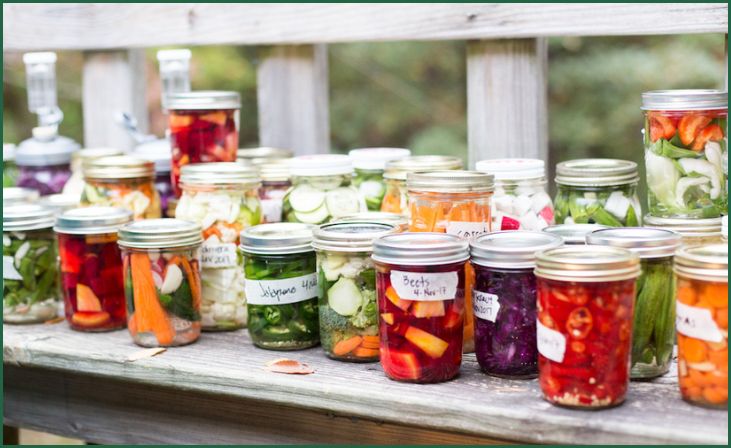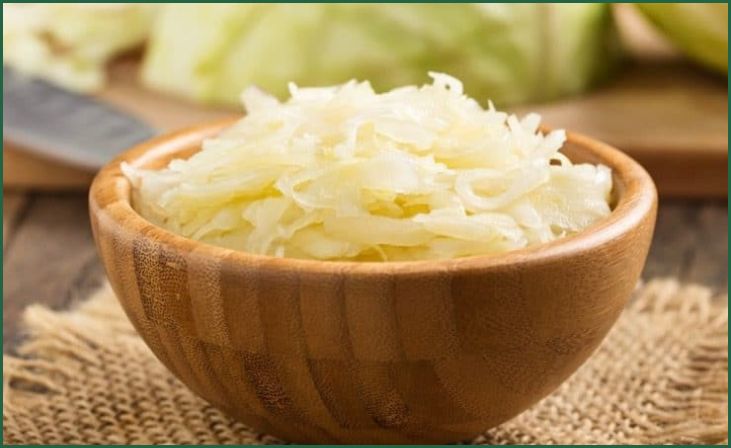In the fast-paced world of today, Fermented Foods for Gut Health and Digestion is essential to general well being. Fermented foods have gained popularity due to their potential to improve gut health and aid digestion. Packed with beneficial bacteria, enzymes, and nutrients, these foods can contribute to a balanced gut microbiome. In this article, we will explore the best eight fermented foods that can positively impact your gut health.
Also Read: Health Benefits of Homemade Fermented Foods
Table of Contents
ToggleThe Power of Fermented Foods

Before diving into the list, let’s understand why fermented foods are considered a powerhouse for gut health. Fermentation is a natural process that involves the breakdown of sugars and other compounds by microorganisms like bacteria and yeast. This process not only enhances the flavor and shelf life of foods but also produces beneficial byproducts that support digestive health.
How Do Fermented Foods Help?
Fermented foods are rich in probiotics, which are live microorganisms that offer various health benefits when consumed. These probiotics help maintain a diverse gut microbiome, which is essential for proper digestion, nutrient absorption, and immune function. Additionally, fermented foods can increase the bioavailability of nutrients and promote a healthy gut lining.
The Top 8 Fermented Foods for Gut Health
Now, let’s explore the best eight fermented foods that you can incorporate into your diet to promote gut health and digestion.
1. Yogurt

Yogurt is a probiotic-rich food, fermented with beneficial bacteria like Lactobacillus and Bifidobacterium. Choose plain, unsweetened yogurt for optimal health benefits. Probiotics in yogurt support gut health, aiding digestion and contributing to overall well-being.
2. Kimchi
Kimchi, a Korean delicacy, is a spicy, fermented dish primarily made from cabbage and radishes. Bursting with probiotics, it promotes gut health. Seasoned with chili pepper, garlic, and ginger, kimchi adds a flavorful kick to dishes. Whether enjoyed as a side or incorporated into various recipes, kimchi offers a delicious and probiotic-rich culinary experience.
Don't just scroll, subscribe!
BuzzTrail's unique web-stories are the cure for boredom you've been waiting for.
3. Kombucha
Kombucha is a naturally effervescent tea. It is made by fermentation. Fermenting sweetened tea with a symbiotic colony of bacteria and yeast yields this probiotic beverage (SCOBY). This delightful drink comes in a range of flavors and is well-known for perhaps helping with digestive health. Kombucha is a delicious and fizzy way to replace regular drinks in your diet.
4. Sauerkraut

Sauerkraut, a fermented cabbage dish, is packed with probiotics that promote gut health. The tangy flavor adds zest to meals, and its natural fermentation process enhances nutritional value. Incorporate sauerkraut as a flavorful side or topping to enjoy its digestive benefits.
5. Miso
This rich, umami-flavored paste is a versatile addition to dishes. Commonly used in miso soup, it adds depth to dressings, marinades, and more. Beyond its savory taste, miso provides probiotics through the fermentation process, contributing to digestive health.
6. Tempeh
Tempeh, an Indonesian staple, is a nutrient-packed, fermented soy product with a firm texture and nutty flavor. A great plant-based protein source, tempeh undergoes natural fermentation, enhancing its digestibility. Incorporate it into various dishes, like stir-fries or sandwiches, for a wholesome and satisfying meal. Tempeh not only adds a savory dimension to your plate but also offers probiotic benefits to support gut health.
7. Pickles
Pickles, when naturally fermented, provide a dose of probiotics that benefit gut health. These pickles, not preserved in vinegar, can be found in the refrigerated section of the grocery store. Choose these live-culture pickles for digestive support and enjoy their crisp texture and tangy flavor as a tasty snack or condiment. Incorporating naturally fermented pickles adds a healthy and flavorful element to your diet.
8. Sourdough Bread

Sourdough bread stands out for its unique fermentation process, using wild yeast and lactobacilli. Unlike conventional bread, this method may make it easier to digest and suitable for those with mild gluten sensitivities. The result is a flavorful, chewy bread with potential benefits for gut health. Enjoy the distinct taste of sourdough while possibly supporting a more diverse and robust gut microbiome.
Conclusion: Fermented Foods for Gut Health and Digestion
Incorporating fermented foods into your diet can have a positive impact on your gut health and digestion. From yogurt to kimchi, these foods offer a variety of flavors and health benefits that contribute to a balanced gut microbiome. By prioritizing your gut health, you’re taking a step towards overall wellness.
FAQs
Can I make fermented foods at home?
Can I make fermented foods at home?
Absolutely! Many fermented foods can be made at home using simple recipes and starter cultures.
Are there any risks associated with consuming fermented foods?
Are there any risks associated with consuming fermented foods?
For most people, fermented foods are safe and beneficial. However, those with certain health conditions should consult a healthcare professional.
How much fermented food should I eat daily?
How much fermented food should I eat daily?
Including a serving of fermented food in your daily diet can be beneficial. Start with small portions and observe how your body responds.
Can children consume fermented foods?
Can children consume fermented foods?
Yes, children can enjoy fermented foods in moderation as part of a balanced diet.

